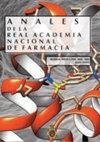全球化世界中的西班牙农业食品部门
Q Pharmacology, Toxicology and Pharmaceutics
Anales De La Real Academia Nacional De Farmacia
Pub Date : 2022-12-31
DOI:10.53519/analesranf.2022.88.05.21
引用次数: 0
摘要
它的基本特征通常用来描述全球化,即经济和社会的逐步一体化。在全球化现象的第三波浪潮中(始于1945年),世界粮食系统经历了深刻的变革,导致了两个平行的进程:食物的同质化(饮食的全球化)和进入食品风险时代。西班牙农业食品部门在20世纪经历了巨大的发展。它真正的国际化始于1986年西班牙加入欧洲经济共同体,这导致了市场的自由化和出口的扩大。在21世纪,不同的国际运动和趋势影响了消费者欣赏食物的方式,促进了对食物的新态度的发展,将他们的兴趣转向健康、环境、动物福利、生产的邻近以及新的消费形式。全球农业粮食系统必须朝着更可持续的模式发展。我们需要努力减少粮食生产的负面影响,使人们能够获得更健康和更有营养的粮食,生产的粮食数量足够养活全体人口,同时减少对社会和环境的影响。关键词:全球化;农业系统;食品安全;可持续性本文章由计算机程序翻译,如有差异,请以英文原文为准。
The spanish agri-food sector in a globalised world
Its fundamental feature usually describes globalization, which is the progressive integration of economies and societies. During the third wave of the globalization phenomenon (starting in 1945), the world food system underwent a deep transformation that led to two parallel processes: the homogenization of food (the globalization of diet), and the entry into the era of food risk. The Spanish agri-food sector has undergone an enormous evolution during the 20th century. Its true internationalization started with the accession of Spain to the European Economic Community (EEC) in 1986, which lead to the liberalization of markets and the expansion of exports. At the 21st century, different international movements and trends have influenced the way consumers appreciate food, promoting the development of a new attitude towards food, moving their interest towards health, the environment, animal well-being, the proximity of production, as well as new forms of consumption. The global agri-food system must evolve towards a more sustainable model. We need to work on the reduction of the negative impacts of food production, and to allow the population the access to healthier and more nutritious food, produced in sufficient quantity to feed the entire population with less social and environmental impact.
Keywords: globalization; agri-food systems; food safety; sustainability
求助全文
通过发布文献求助,成功后即可免费获取论文全文。
去求助
来源期刊

Anales De La Real Academia Nacional De Farmacia
Pharmacology-
CiteScore
0.13
自引率
0.00%
发文量
7
期刊介绍:
The Anales de la Real Academia Nacional de Farmacia� embraces all aspects of pharmaceutical sciences and is a quarterly journal that publishes basic and applied research on pharmaceutical sciences and related areas. It is a medium for reporting selected original and significant contributions to new pharmaceutical knowledge.
 求助内容:
求助内容: 应助结果提醒方式:
应助结果提醒方式:


